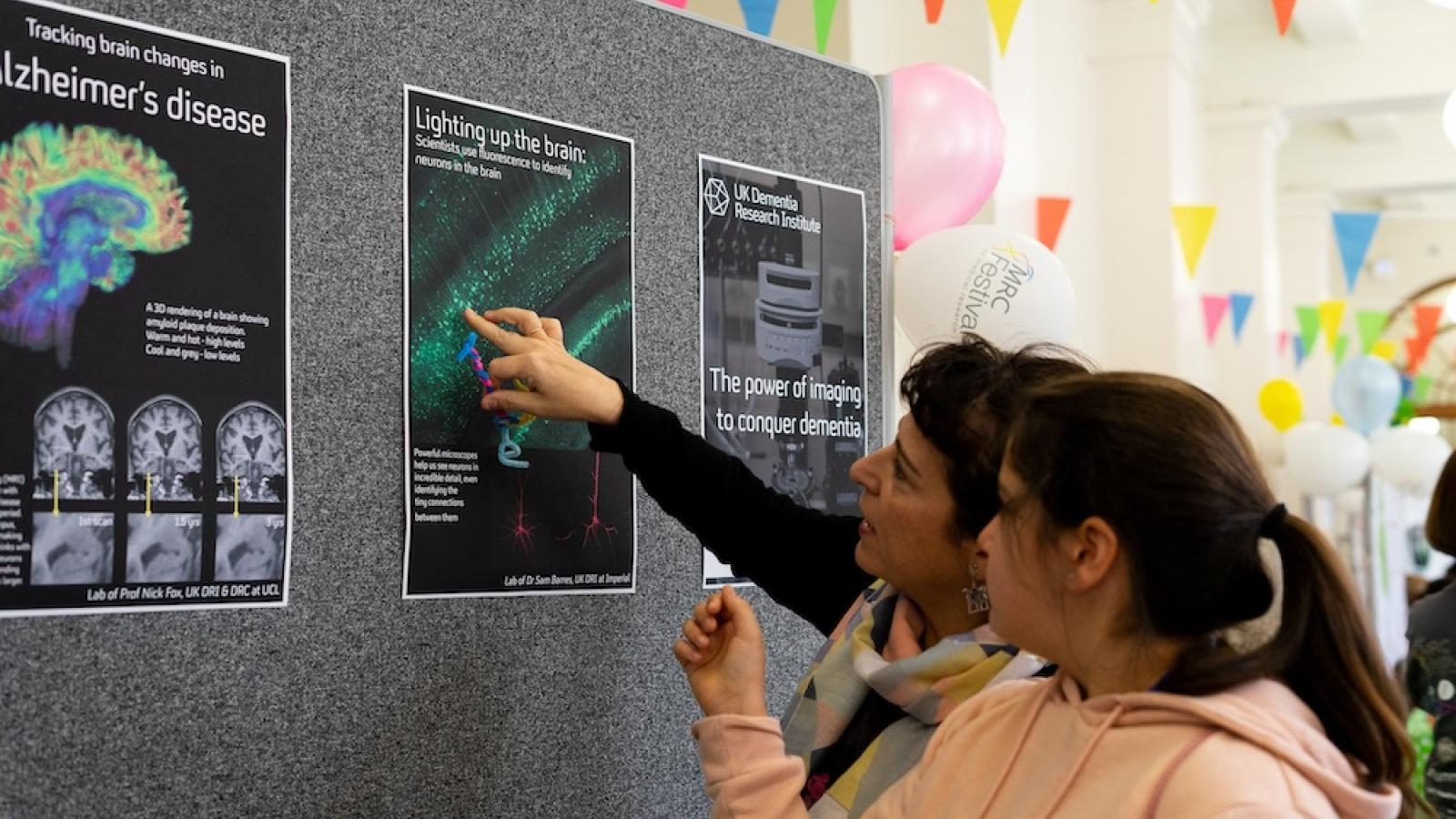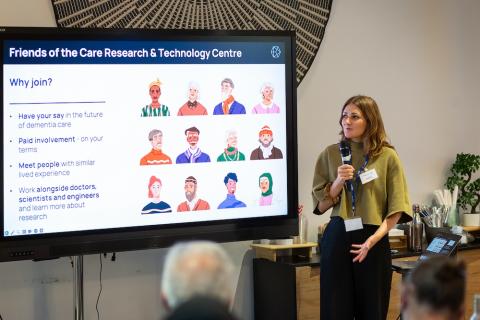Learning from people with lived experience of dementia
We exist to improve the lives of those living with or at risk of neurodegenerative conditions, and their carers. Our approaches and research are strengthened by input from people with lived experience of dementia. All our lived experience advisors are paid or rewarded for their work according to NIHR guidelines.
In our operations
The institute was set up upon a culture of involvement. We gather groups of people with lived experience to help shape our work and how we operate. This includes valuable input at launch events, the development of our website, for our communications materials and on key selection panels – including appointing our founding Institute Director Bart De Strooper and joining the selection panel for our Care Research & Technology Centre.
In our research
We create opportunities for people with lived experience to connect with our researchers. For example, we hosted a workshop with Prof Nir Grossman, UK DRI Group Leader at Imperial, and participants with lived experience which had a significant impact on UK DRI research aim to develop brain stimulation technology for Alzheimer's disease.
We ran a series of workshops and activities in collaboration with our Lived Experience Group, the Helix Centre and UK DRI founding funder Alzheimer’s Society. The purpose was to understand how best to develop an innovative new brain stimulation technology, which hopes to improve cognition in Alzheimer’s - led by UK DRI Group Leader at Imperial, Prof Nir Grossman.
At our Care Research & Technology Centre
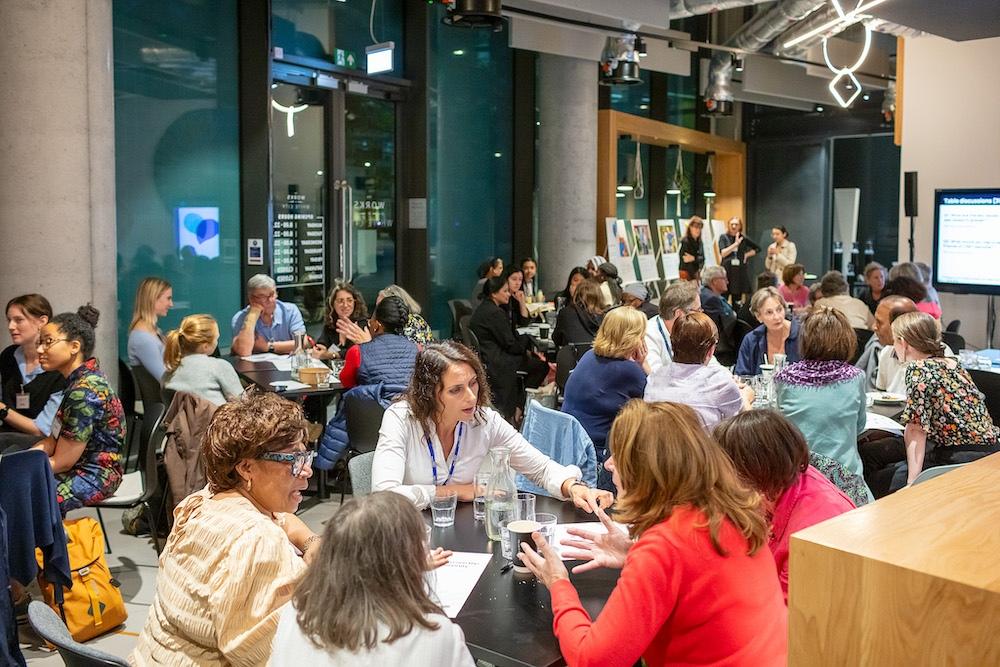
The launch event of the 'Friends of CR&T' network in October 2023. Credit: Dan Weill.
To ensure the research at our Care Research & Technology centre is focused on the outcome of improving lives, the perspectives of people with lived experience of dementia are weaved throughout our work. This includes forming steering groups on strategy, ethics discussions, inclusivity and dissemination, as well as establishing a co-production network (Friends of CR&T) to take part in workshops, user research and focus groups on projects.
Find out more about the Friends of CR&T network
1 year of the Dementia Lived Experience Group
As the Group's first year comes to an end we celebrate their achievements in not only impacting the research of the Centre, but helping evolved the cadence rhythms and rituals of the Group.
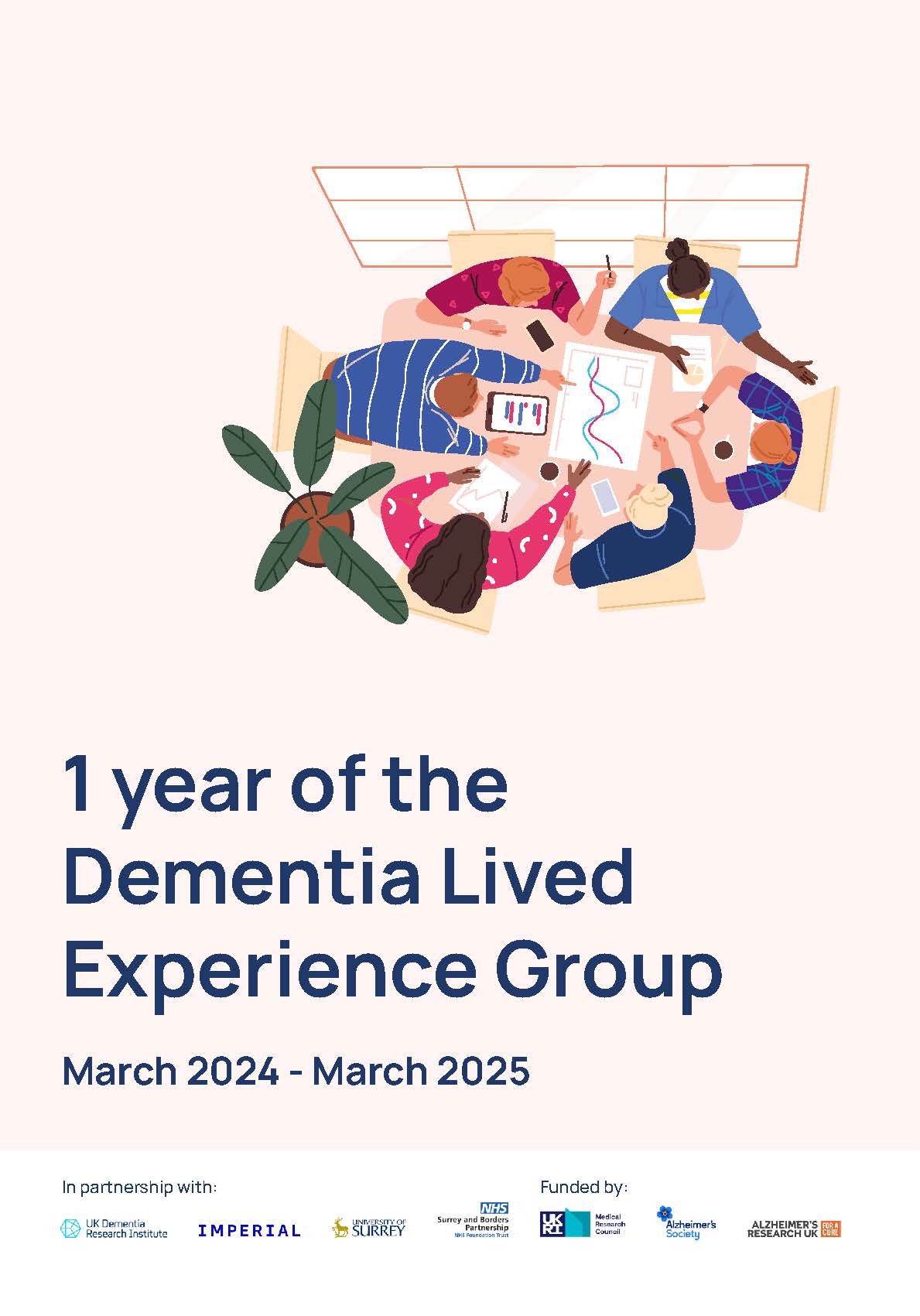
Sharing our research with the public
Much of our funding comes from generous donors to charities and taxpayer’s money, so it’s very important to us to demonstrate our successes and the impact this is making. We strive to be transparent, build trust and ultimately for the public to be proud of their national dementia research institute. We do this imperative engagement with the public through a range of channels, including press, social media, talks and events.
We also believe in inspiring the future researcher workforce. We connect with students, notably through Sophie Sanford's Making it Brain initiative which showcases STEM career opportunities with a diverse panel of presenters.
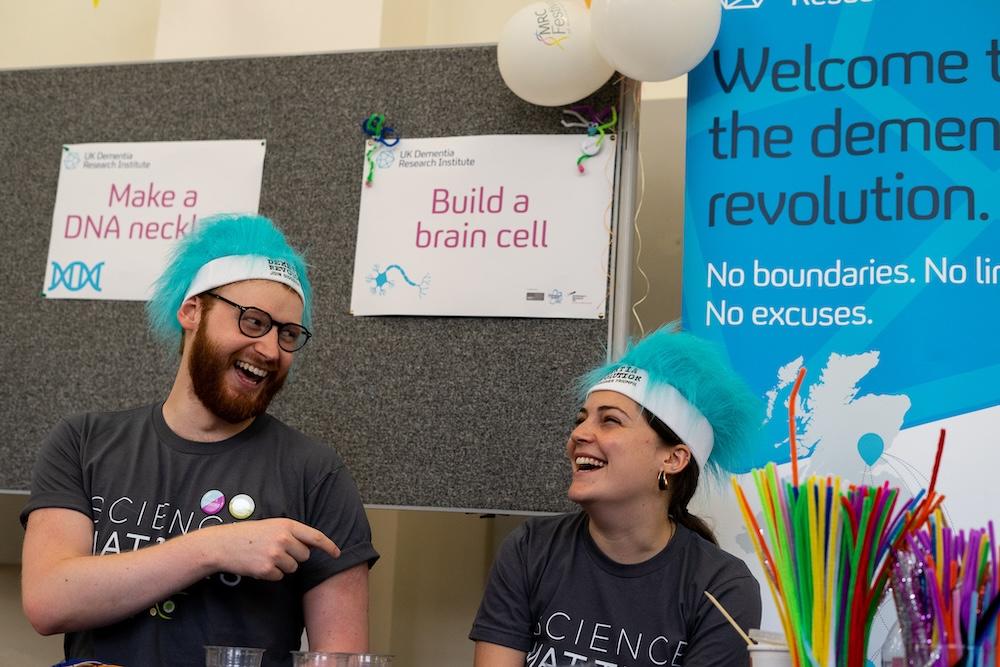
UK DRI researchers engaging with the public at the MRC Festival of Science.
Working with policymakers
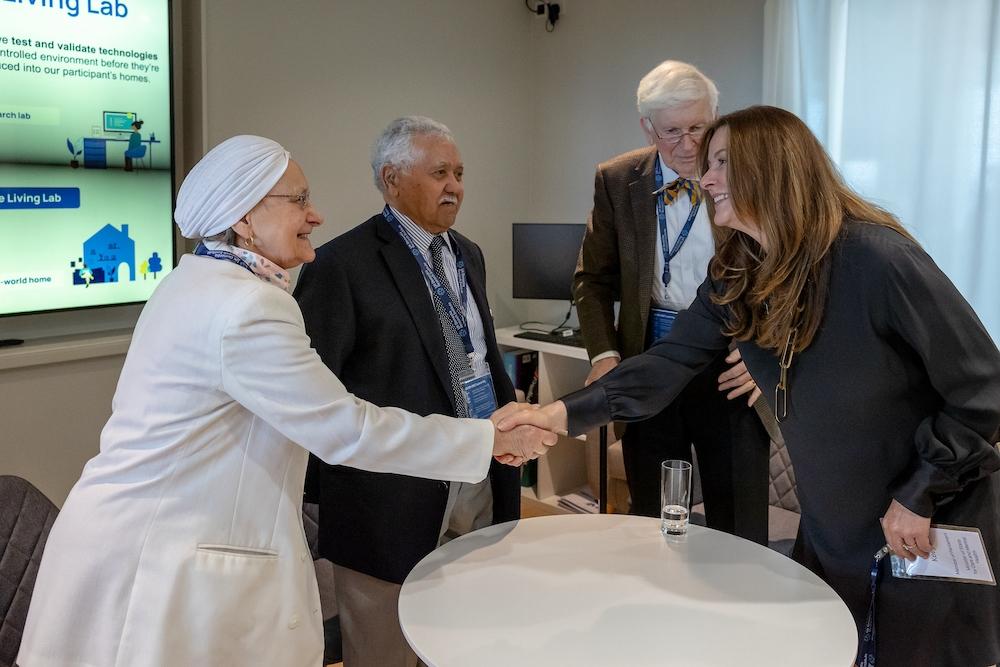
Former Minister of State for Care and Mental Health, Gillian Keegan, visited the UK DRI Care Research & Technology Centre in 2022 and met some of the trial participants.
Dementia has enormous human, societal and economic costs. The UK DRI is committed to ensuring that dementia research, and UK science more broadly, remains a priority and can continue to thrive and deliver much needed breakthroughs. We engage with policymakers on a range of issues and critical areas, all to boost scientific progress and drive positive change for the millions of people affected by neurodegeneration.
Find out more on our 'Policy and advocacy' page.
Latest news
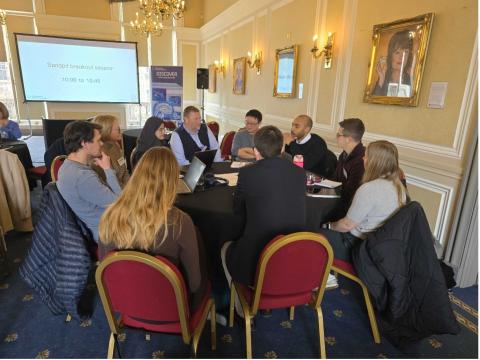
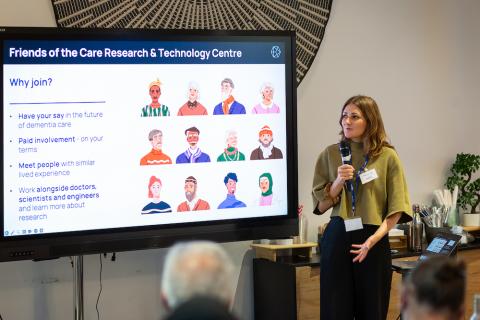
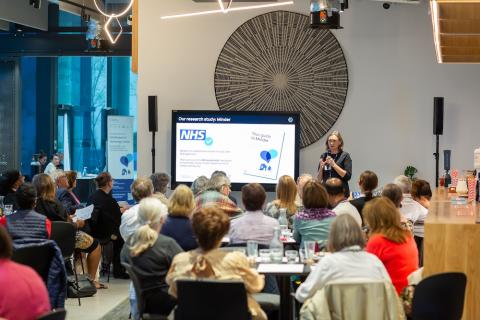
For more information or to get involved in our engagement activities, please contact Lucy Wilson, Chief Communications and Engagement Officer.
